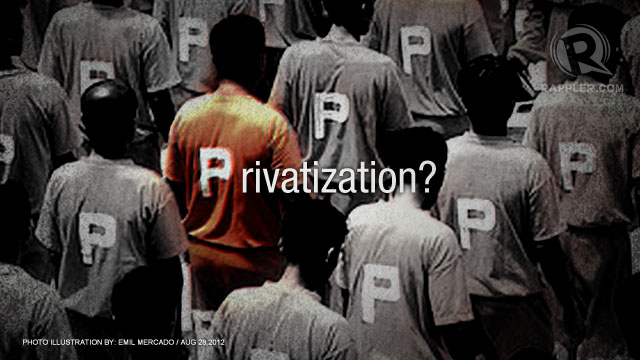SUMMARY
This is AI generated summarization, which may have errors. For context, always refer to the full article.

MANILA — It’s no novelty. Other countries, including the United States and the United Kingdom, have tried outsourcing the management of prisons.
Hence, why not try it here in the Philippines as well, suggests Representative Arnel Ty of the party-list group LPG Marketers’ Association (LPG-MA)?
Ty made the suggestion following the alleged abduction of murder convict Rolito Go from the New Bilibid Prisons (NBP), as well as the disappearance of a maximum security prisoner who was later recaptured in Isabela province.
Ty said privatizing Philippine prisons could help improve the living conditions of inmates. “The overcrowding of our correction facilities is bound to worsen as their populations grow.”
“Sadly, government does not have the wherewithal to construct and maintain our next generation prisons. Thus, we may have to consider bringing in private capital.”
The NBP, along with 6 other prisons, is run by the Bureau of Corrections (BuCor). As of 2012, the combined inmate population of these prisons is 36,426.
Increasing efficiency?
Ty said the state should explore the viability of adopting the American model of enlisting the private sector’s help to build, operate and maintain the country’s future prisons under the supervision of the BuCor.
In America, Ty pointed out, tens of thousands of inmates are now being housed and managed by private specialists that bid competitively at the federal, state and municipal levels for the contracts to provide such services.
Ty noted that jammed prisons cause heightened frustration, anger and tension among inmates that lead to conflicts and violence. This, in turn, endanger the safety of both detainees and guards.
“We may have to eventually transfer to private firms the performance of detention, correction and rehabilitation services. This may be one of the ways to sustain a cost-efficient penal system in the future,” the partylist congressman said.
Is it feasible?
Whether the proposal will be feasible or not remains to be seen. Privatized prison systems in other countries have met with criticisms in the recent past, according to CNN.com.
For the year 2012, the Bureau was given a total budget of P1.55 billion. Of this amount, what could be outsourced is the P1.39 billion that is supposed to cover the cost of custody, maintenance, and rehabilitation of national prisoners.
It seems like a sizeable sum until the breakdowns.
A portion of this amount, P353.99 million, covers the salaries and benefits of prison guards and other personnel involved in supervising the inmates and managing the prison facilities.
If this sum is divided by the number of inmates, it means about P9,718.17 a year is allotted to secure or supervise each inmate.
A total of P997.61 million goes to funding operational expenditures, including food for the inmates. If this sum is broken apart and divided by the number of inmates currently in custody, this amounts to roughly only about P75 per prisoner per day.
How a capitalist could still make money on top of those meager numbers remains to be seen.
In 2011, Ty also filed House Resolution 1380, which directed the House committee on public order and safety to inquire into prison conditions and recommend possible reforms. – Rappler.com
Add a comment
How does this make you feel?
There are no comments yet. Add your comment to start the conversation.